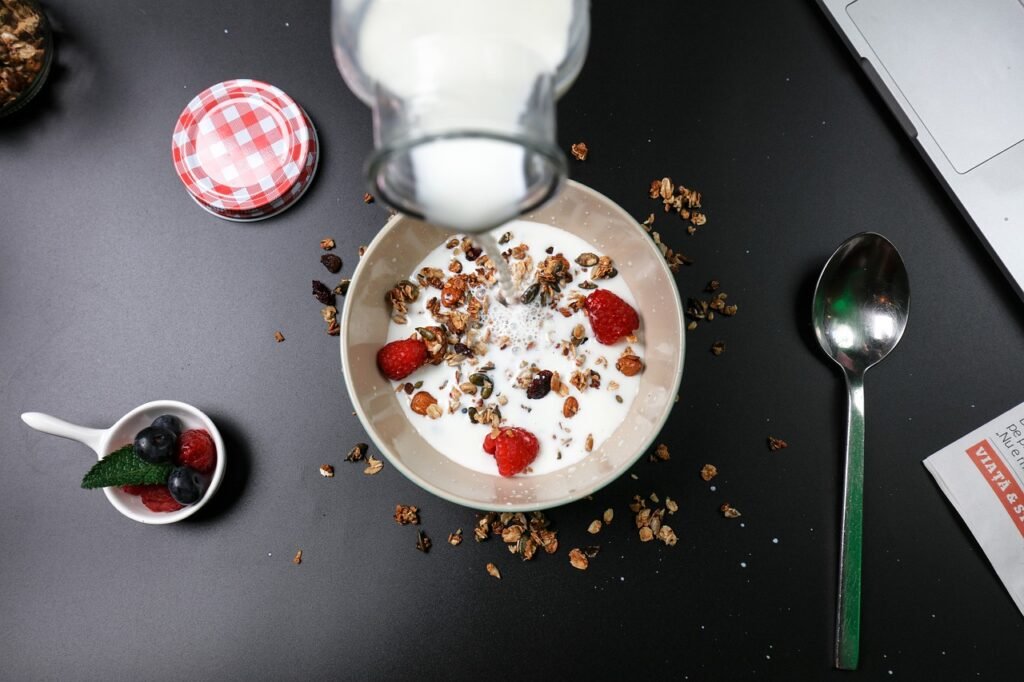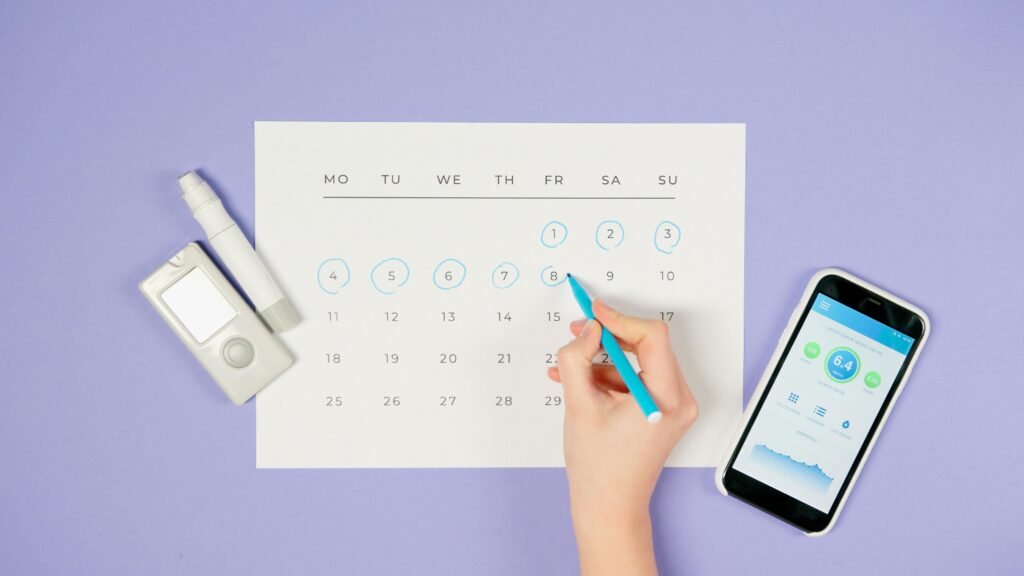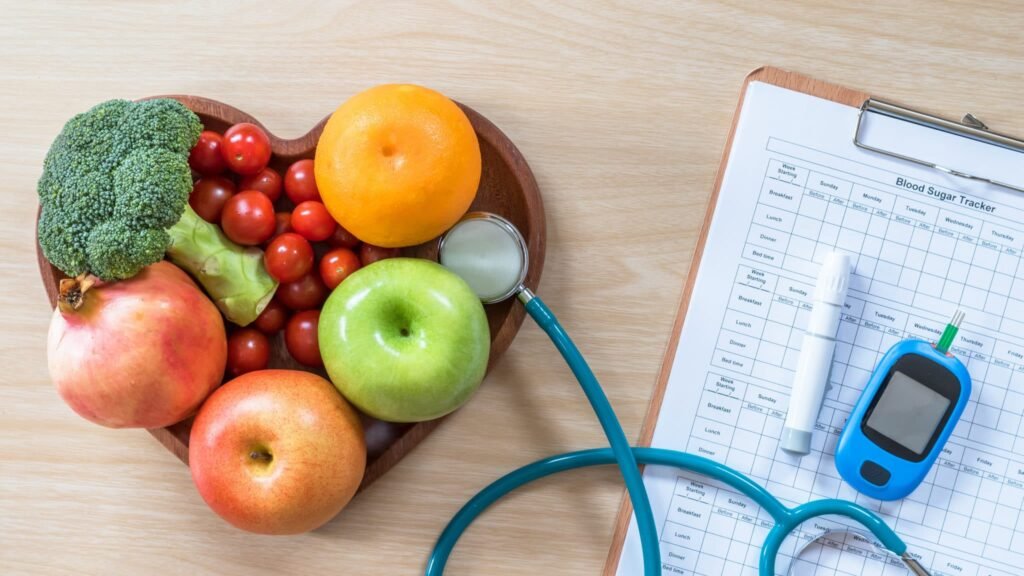Learn about the best ways to self manage diabetes through natural means. Acquire knowledge on diet, exercise, stress management and additional principles for controlling blood sugar levels and promoting well being.
Diabetes is one of the major global health concerns that is present in populations of increasing millions. This is a lifelong condition that needs medical attention to ensure that blood sugar level is well controlled. Of course, sometimes, medications and even insulin injections may be required; however, many people look for more or less nondrug approaches to managing diabetes effectively. Within this easy to follow program there will be several strategies that are effective for stabilizing blood sugar levels relying on techniques such as diet changes, exercise, stress reduction, and sleep enhancement along with other techniques.
Understanding Diabetes
Diabetes is a metabolic pathology that represents the disorder of glycemic levels due to the lack of insulin or the insensitivity of tissues to it. There are three primary types:
- Type 1 Diabetes: A disorder in which a person’s immune system destroys them cells that produce insulin in the pancreas due to some formations of their immune system.
- Type 2 Diabetes: By far the most prevalent type characterized by insulin resistance or the lack of it brought on by such factors as inherited disposition to the disease and life styles.
- Gestational Diabetes: A pregnancy-related condition which raise or predisposes the patient to get type 2 diabetes in future.
Type 1 diabetes necessitates use of insulin as treatment, however, changes in lifestyles embrace a large part of animate being’s management of type 2 and gestational diabetes that would lead to enhanced outcomes and less reliance on medications.
The Power of a Balanced Diet
Consumption of foods is an important factor in the management of diabetes. A balanced diet means that the body is supplied with food that does not cause fluctuation of blood sugar. Here’s how to get started when trying to follow diabetic diet.

Role of Diet in Diabetes Management
Balancing ones diet assists in regulation of blood sugar, reduces cholesterol levels, decreases swelling and enhances the wellbeing of the heart. The correct type of carbohydrate foods which are slow in releasing glucose should be taken to allow the body to have energy from time to time.
The Foods that you need to eat when you have high levels of Blood Sugar
- High-Fiber Foods: Fiber lowers down the rate of digestion of glucose thereby negating high rates of increase in blood sugar levels. These are; vegetables, fruits (berries inclusive), whole grain cereals, and legumes.
- Lean Proteins: Protein is necessary for muscles to grow back when damaged and to avoid hunger pangs, but without raising insulin levels. Choose fish, chicken, tofu or lentils.
- Healthy Fats: Eating healthy fats enhances the health of the heart and this is particularly important to a diabetic since they are prone to heart diseases. Examples of these are avocados, nuts and seeds, and olive oil.
- Low-Glycemic Index (GI) Foods: Such foods as non-starchy vegetables, apples, chickpeas amongst others, raise the blood sugar level slowly.
Foods to Avoid
- Sugary Foods and Beverages: Sodas, candies, and sweets are the main culprits of high blood sugar increase rates.
- Refined Carbohydrates: In this category, things like white breads, pasta and pastries are categorized as they have low fiber and give a spiked glucose response.
- Trans Fats: These are consumed in foods that are manufactured and they cause high levels of bad cholesterol as well as worsen the condition of insulin resistance.
Sample Meal Plan for Diabetic Health
- Breakfast: Avocado and scrambled eggs on whole grain toast, and a bowl of berries.
- Lunch: Greek salad which incorporates lettuce, chickpeas, cherry tomatoes, grilled chicken and olive oil dressing.
- Dinner: Grilled salmon with broccoli and quinoa.
- Snacks: Apples cut with almond butter as a spread or a serving of nuts.
Top 15 Superfoods You Need to Include in Your Diet Right Now
Tips for Consistency
- Meal Prepping: It is more effective to prepare meals in advance in order not to drift away from a healthy diet plan.
- Portion Control: Substitute with small plates or prefer to split the food into several portions.
- Managing Cravings: Recommend portion control eating and eating healthy snacks at a restricted frequency.
The Role of Exercise
Physical activity is one of the best natural nonpharmacologic approaches to diabetes management. Physical activity enhances the action of insulin, decreases blood glucose level, and integral health.

Why Exercise Helps with Diabetes
Aerobics makes cells to become sensitive to insulin and this enables the glucose to move into the cells. It also provides weight loss which in turn helps to properly manage diabetes and minimize on the occurrence of complications.
Types of Exercise for Diabetic Health
- Aerobic Exercise: Anything that gets you moving, whether it is walking briskly, cycling or swimming has benefits in terms of the heart, blood vessels and blood sugar.
- Resistance Training: Weight or body weight based strength exercises can add muscle which is beneficial to the body in its ability to utilize glucose.
- Flexibility and Balance Exercises: Yoga and stretching make the body more mobile and also have psychological benefits in that they help to relieve stress.
Creating an Exercise Routine
For effective diabetes management, aim for:
- 150 minutes of moderate-intensity aerobic activity weekly.
- 2-3 sessions of strength training weekly.
- Regular stretching and balance exercises as part of your warm-up and cool-down.
Sample Workout Plan
- Day 1: 30-minute brisk walk + 15 minutes of stretching.
- Day 2: Strength training (bodyweight exercises like squats, lunges, push-ups).
- Day 3: 30 minutes of swimming or cycling.
- Day 4: Rest or light yoga session.
- Day 5: 20-minute walk + 20 minutes of resistance band exercises.
Weight Management and Its Role in Managing Diabetes
It is evidence based that any level of weight reduction is beneficial to an individual especially in relation to blood sugar regulation.
Here are some tips for effective weight management:
- Set Realistic Goals: The first logical goal should be the loss of 5-10% body weight.
- Track Your Intake: Keep a journal or an application of what and how much you have eaten.
- Mindful Eating: Don’t rush your food and try to have a pleasant conversation or practice chewing with your lips closed to prevent over eating.
Stress Management for Diabetes Control
Products such as cortisol stress hormones are some of the ways through which blood sugar is increased. Stress management practices however are crucial when dealing with diabetes.
Effective Stress Management Techniques
- Meditation and Mindfulness: Stress and glucose regulation can be improved by relaxing activities such as deep breathing, meditation and mindfulness.
- Breathing Exercises: One coping can be easy, deep breathing to trigger the relaxation response of the body.
- Journaling: Putting thoughts about stress on paper may be helpful for understanding and decreasing such stress levels.

Chronic Stress: How It Damages Your Health and Powerful Ways to Fight Back
Quality Sleep: A Hidden Key to Blood Sugar Control
Sleep can alter hormones regulating appetite and metabolism that entwine with each other. For better sleep:
- Stick to a Schedule: Get to bed and wake up at the same hour Fire 7 Effective personal habits for busy people.
- Create a Calming Bedtime Routine: Watch a movie, play video games, take a nap, or paint.
- Limit Screen Time: Shun screens at least an hour before the bedtime to enable the body to secrete melatonin hormone.

Comprehensive Guide to Sleep Disorders: Symptoms, Causes, and Treatment
The Importance of Monitoring and Record-Keeping
In monitoring, patterns and identify what does what to glucose are figured out by tracking blood sugar levels.
Tracking Blood Sugar
Check Regularly: Tightly control blood sugar as advised by the doctor.
Record Patterns: Check the blood sugar levels before and after eating meals to observe how they influence you.
Use Apps or Journals: Automatic tools allow having and displaying an up-to-date picture in a short space of time.

Natural Remedies and Supplements
While there are natural treatments for diabetes and its symptoms some of which may enhance the effects of medications some of them are safe to use without a doctor’s prescription.
Popular Natural Remedies
- Cinnamon: May reduce insulin resistance but should be consumed moderately.
- Turmeric: Has anti-inflammatory effects which can help with dealing with insulin.
- Apple Cider Vinegar: It is believed to reduce blood glucose levels in some way, perhaps after a meal.
Diabetic Health Supplements
- Chromium: May control blood sugar, particularly in individuals with low chromium content.
- Magnesium: It is low in diabetic patients; it has been reported that supplementation helps to enhance the positive effect of insulin on muscle and fat tissue.
- Alpha-Lipoic Acid: An antioxidant for diabetic neuropathy and enhancement of glycemic control.
Creating a Support System
In managing diabetes, it is equally important to be supported by family and friends and some other members of the society.
- Join Support Groups: Community, national or online diabetes support provide encouragement encouragement and support via experience, suggestion and word.
- Communicate with Loved Ones: It covers the regulations within a period of five years and can be shared with close ones to explain change in lifestyle necessary.
- Utilize Professional Resources: The support could be obtained from diabetes educators, dietitians or counselors.
Common Myths About Managing Diabetes Naturally
Several myths are associated with diabetes dietary intake. Myths concerning diabetes diet are many. Let’s clarify some:
“Natural” Means No Medication: Lifestyle changes are a good partner to medical care, however, they should not be treated as medical care, especially regarding Type 1 diabetes.
Carbohydrates Are the Enemy: Carbohydrates are not the enemy and neither is eating them because it is the kind of carbs and the quantity that should be of concern.
All Supplements Are Safe: While some natural supplements can be taken without any harm, they can also affect medication; see a doctor first.
Conclusion
Controlling diabetes truly has to do with properly remembering embodied cum holistic way, avoidance of certain types of foods, regular exercise, stress reduction and good sleep. Three most important things that should be taken into consideration are consistency, patience, and a healthcare provider. The above changes in lifestyle make it possible that people with the disorder might be able to retain better health, maybe without medication.
FAQ’s
Which foods should I avoid to manage diabetes naturally?
To manage diabetes, avoid foods high in added sugars (like soda and sweets), refined carbs (white bread, pasta), and trans fats (found in many processed snacks). Instead, focus on whole grains, lean proteins, healthy fats, and fiber-rich vegetables and fruits that support steady blood sugar.
Is it safe to take natural supplements for diabetes, like cinnamon or turmeric?
While certain natural supplements like cinnamon and turmeric may support blood sugar management, they should be used cautiously. Always consult a healthcare provider before adding supplements, as they may interact with medications or affect blood sugar levels in unpredictable ways.
How much exercise should I aim for to help manage diabetes?
Aim for at least 150 minutes of moderate-intensity aerobic exercise (like brisk walking or cycling) per week, along with 2-3 sessions of strength training. Exercise improves insulin sensitivity, helps with weight management, and supports better blood sugar control.
Can stress really affect my blood sugar levels?
Yes, stress releases hormones like cortisol that can cause blood sugar levels to spike. Incorporating stress management techniques such as deep breathing, meditation, and exercise can help control these effects and support better overall diabetes management.
Does losing weight help manage diabetes?
Yes, losing even a small amount of weight (5-10% of body weight) can improve insulin sensitivity and blood sugar control, particularly in people with Type 2 diabetes. Weight management through diet and exercise is a powerful tool for better diabetes outcomes.




Pingback: Top 10 Diabetes Myths: Essential Facts For Better Management - Health Wander